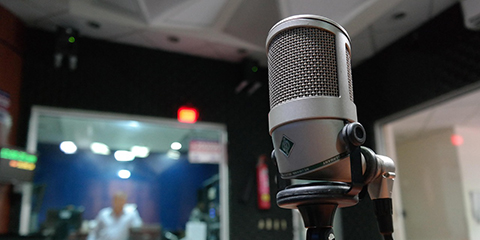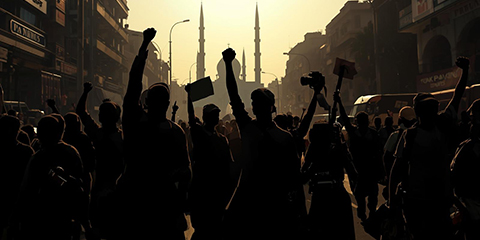Fact-checking failure: How Hamid Mir and Asma Shirazi fell for an AI-generated hoax
JournalismPakistan.com | Published last year | JP Staff Report
Join our WhatsApp channel
ISLAMABAD—In an era where misinformation spreads like wildfire, the responsibility of journalists to verify information before sharing it has never been more critical. Recently, two of Pakistan's most prominent journalists, Hamid Mir and Asma Shirazi, were embroiled in controversy after sharing an AI-generated fake image on social media. The incident raises serious concerns about journalistic integrity and the dangers of unverified information in the digital age.
The image in question depicted Natasha, a woman involved in a tragic accident case in Karachi, making a "victory" sign outside what appeared to be a court. The implication was clear: the accused, despite being responsible for the deaths of a 60-year-old man and his daughter, was flaunting her release. The outrage was immediate, with both journalists expressing their dismay at the perceived miscarriage of justice.
However, it was soon revealed that the image was a complete fabrication, created using artificial intelligence. The supposed scene was a figment of technology, not reality. Both Hamid Mir and Asma Shirazi deleted their posts, but the damage was done. The quick spread of the fake image and its endorsement by respected media figures highlighted the pervasive issue of misinformation and the ease with which it can ensnare even seasoned journalists.
This incident underscores the need for journalists to adhere to strict verification protocols, especially when sharing content on social media platforms. The failure to do so not only undermines their credibility but also contributes to the larger problem of fake news, which can have far-reaching consequences in shaping public opinion and influencing events.
Hamid Mir and Asma Shirazi's swift deletion of the posts suggests an acknowledgment of their mistake, but it also raises questions about the initial lack of due diligence. In an industry where credibility is paramount, such lapses can have long-term repercussions.
This incident should serve as a wake-up call for journalists everywhere. The rise of AI-generated content means that the traditional tools of verification are more important than ever. Before hitting "share," journalists must ensure that what they are endorsing is rooted in fact, not fiction. The role of the media as the fourth estate depends on its ability to hold power to account—something that is impossible if the media itself falls prey to the very misinformation it seeks to combat.

























